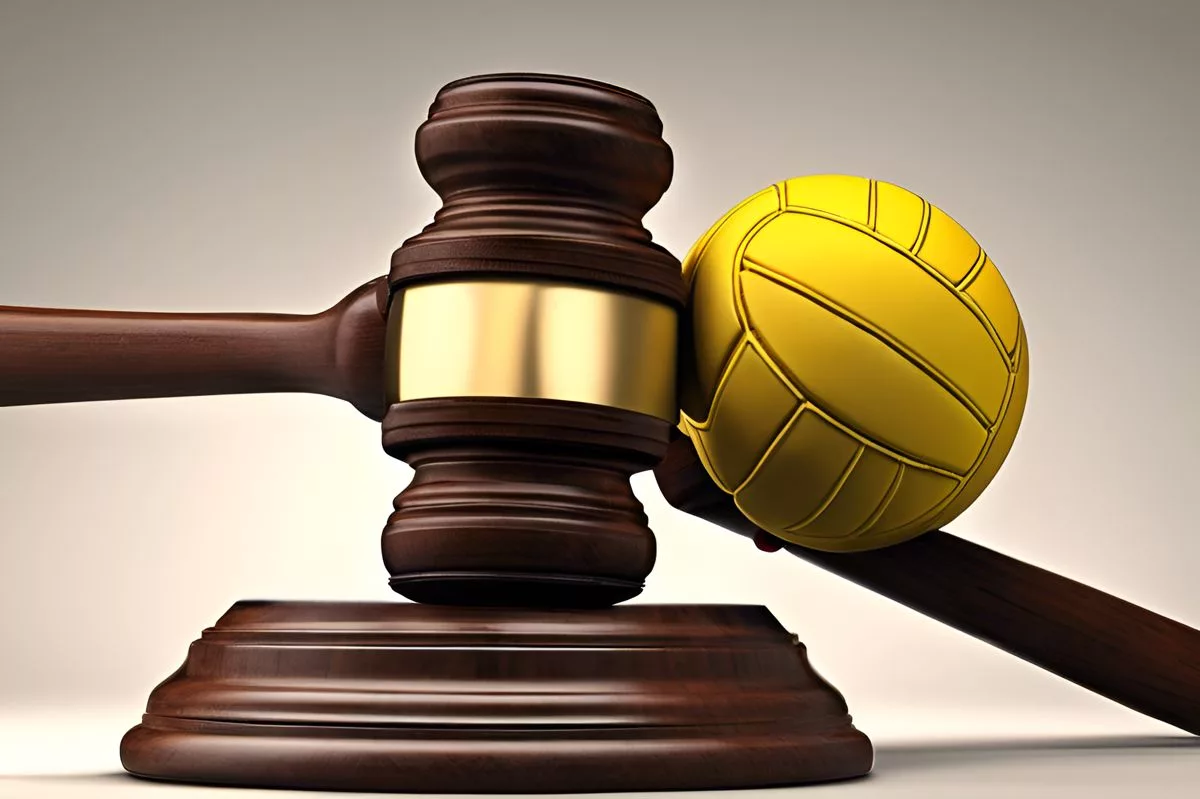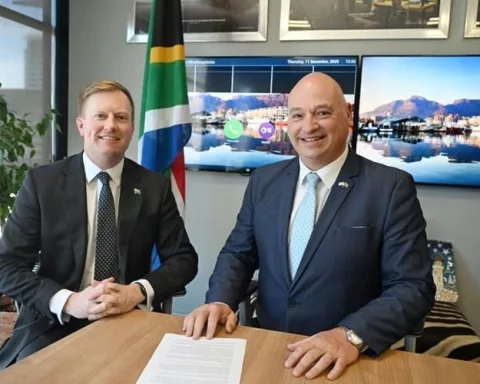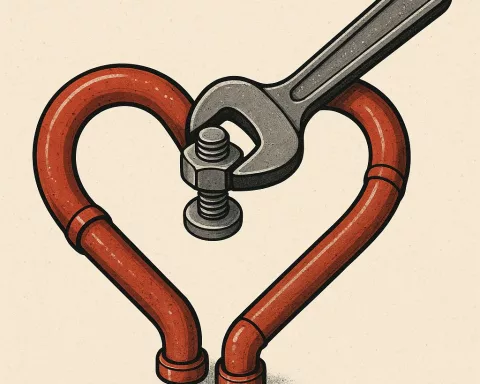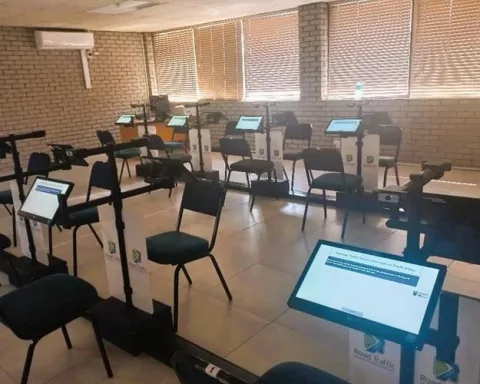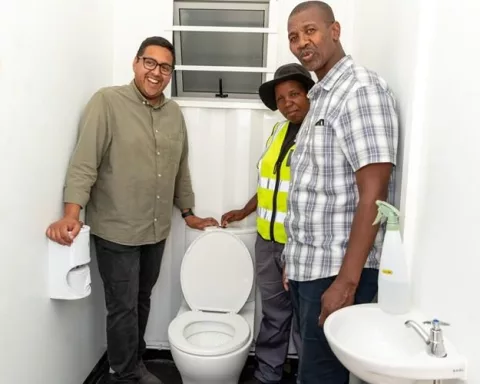The ‘BishBosch brawl‘ refers to a violent incident between two prestigious Cape Town schools during a water polo match. The incident resulted in severe injuries and a civil damages claim of R645,000. The case has uncovered longstanding tensions and aggressive behavior between the two schools, highlighting the need for stricter control and discipline at school events. The court case reveals a culture of ‘goading‘ and verbal taunts between the schools, emphasizing the importance of maintaining decorum and discipline at educational institutions.
What is the ‘BishBosch brawl’?
The ‘BishBosch brawl’ refers to a violent incident that occurred during a water polo match between two prestigious Cape Town schools, Bishops Diocesan College and Rondebosch Boys High School. The incident resulted in severe injuries to a Rondebosch pupil and has led to a civil damages claim of R645,000. The case has unveiled longstanding tensions and aggressive behavior between the two schools, highlighting the need for stricter control and discipline at school events.
In Cape Town’s esteemed precinct of academia, the Western Cape High Court recently experienced a riveting narrative referred to colloquially as the ‘BishBosch brawl’. It began approximately six years ago, lighting a flame of rivalry between two renowned boys’ schools, Bishops Diocesan College and Rondebosch Boys High Schools. Today, this intense rivalry has re-emerged as a crucial aspect of a civil damages claim amounting to an imposing R645 000.
The contentious brawl happened on February 3rd, 2018, amidst a heated water polo match. Bingo Ivanisevic, a pupil from Bishops, landed a forceful punch on Ross Stone from Rondebosch Boys High School. Stone suffered severe injuries that needed surgical intervention. Stone’s legal representatives provided the court with graphic images of the teenager’s bloodied face; his teeth were knocked into his gums, one tooth was even found at the bottom of the pool, and a bone was fractured.
Stone’s legal representatives, in their claim, outlined not just the historical and future medical costs but also incorporated general damages. In a provocative move, they ascribed a portion of the blame to Bishops, contending that the attack occurred on their campus, which suggested they should bear some liability for the damages.
The Courtroom Battle and Twists
Bishops’ legal representatives acknowledged the assault by Ivanisevic, but affirmed that they had enforced punitive actions against him, as proscribed by the Fédération Internationale de Natation (Fina). In a somewhat aloof position, Bishops asked the High Court to declare Ivanisevic solely accountable for any damages.
There was a dramatic turn of events when Ivanisevic reiterated his side of the story, arguing self-defense. He persisted that he felt as though he was drowning, held underwater and punched, and his strike on Stone was merely a reactionary punch. He claimed that Stone’s actions forced air out of his lungs, causing him to ingest water, and potentially leading to severe injury or even death.
During the court proceedings, declarations from past students and staff of both institutions unveiled a sinister aspect of the schools’ rivalry. They depicted an established culture of ‘goading’, where not only the pupils but also their parents engaged in verbal taunts during sports events. The court heard stories of frequent misconduct, with Rondebosch students heckling their Bishops’ counterparts, and Bishops pupils tossing coins into the pool while jeering about their parents’ upper-class status.
Unveiling the Tensions and Rivalries
Warren Wallace, Bishops’ Head of Sport, conceded that the observers’ behavior was often raucous and confrontational, but dismissed the idea that the environment was as explosive as Ivanisevic portrayed. He recalled instances where a Bishops’ parent was involved in a physical altercation with a parent from another school during a water polo match.
More information surfaced, such as a report by acclaimed water polo coach Fiona Viotti, which resulted in disciplinary measures against Ivanisevic. Wallace clarified that he had led the investigation as part of the disciplinary committee, and that a rule was in place prohibiting questioning Ivanisevic about any impending criminal allegations.
Testimonies revealed that aggressive behavior towards Ivanisevic by Rondebosch students was a regular occurrence. Angus Firth, an instructor from Bishops, admitted that the behavior of children and parents at sporting events was ’embedded in the culture,’ which the schools had been attempting to amend.
Lessons and Reflections from the Saga
This case serves as a stark reminder of the harmful side of school rivalries and the potential perils inherent in unchecked aggression. It also reflects the need for stricter control and discipline during school events, for the sake of both the students’ safety and the reputation of the institutions they represent. This case offers a valuable lesson about the importance of maintaining decorum and discipline, especially in educational institutions that carry the weight of shaping young minds for the future.
What sparked the ‘BishBosch brawl’?
The ‘BishBosch brawl’ was sparked by a violent incident that occurred during a water polo match between two prestigious Cape Town schools, Bishops Diocesan College and Rondebosch Boys High School. The incident resulted in severe injuries to a Rondebosch pupil and has led to a civil damages claim of R645,000.
What is the civil damages claim amount?
The civil damages claim amount for the ‘BishBosch brawl’ is R645,000.
What does the court case reveal about the culture between the schools?
The court case reveals a culture of ‘goading’ and verbal taunts between the schools, emphasizing the importance of maintaining decorum and discipline at educational institutions.
What is the importance of stricter control and discipline at school events?
The importance of stricter control and discipline at school events is to ensure the safety of the students and the reputation of the institutions they represent.
What lessons can be learned from the ‘BishBosch brawl’?
The ‘BishBosch brawl’ serves as a reminder of the harmful side of school rivalries and the potential perils inherent in unchecked aggression. It also reflects the need for stricter control and discipline during school events. This case offers a valuable lesson about the importance of maintaining decorum and discipline in educational institutions that carry the weight of shaping young minds for the future.
How has the schools’ rivalry been portrayed during the court case?
During the court case, declarations from past students and staff of both institutions unveiled a sinister aspect of the schools’ rivalry, depicting an established culture of ‘goading’, where not only the pupils but also their parents engaged in verbal taunts during sports events. The court heard stories of frequent misconduct.

